 Former acting Comptroller of the Currency Brian Brooks has resigned as the CEO of Binance U.S. after just over three months. He cited “differences over strategic direction.” Meanwhile, Binance is facing regulatory scrutiny worldwide, including in the U.K., Malaysia, Japan, Cayman Islands, Hong Kong, Thailand, Germany, and Lithuania. CEO of Binance US Resigns The CEO […]
Former acting Comptroller of the Currency Brian Brooks has resigned as the CEO of Binance U.S. after just over three months. He cited “differences over strategic direction.” Meanwhile, Binance is facing regulatory scrutiny worldwide, including in the U.K., Malaysia, Japan, Cayman Islands, Hong Kong, Thailand, Germany, and Lithuania. CEO of Binance US Resigns The CEO […]
Acting OCC head, Michael Hsu, wants greater inter-agency cooperation in establishing regulatory guidelines for the crypto sector.
The Acting Comptroller of the Currency, Michael Hsu, has expressed that regulatory agencies in the United States should establish a “regulatory perimeter” for digital assets and cryptocurrencies.
In an interview with Financial Times, Hsu indicated U.S. regulators will look to take a more active role in policing the crypto asset sector with an emphasis on minimizing the associated risks faced by investors and consumers.
"It really comes down to coordinating across the agencies,” Hsu said, adding: “Just in talking to some of my peers, there is interest in coordinating a lot more of these things.”
Hsu noted that the first meeting of the inter-agency, crypto-focused “sprint” team took place earlier this month. The team comprises representatives from the Federal Reserve, the Federal Deposit Insurance Corporation, and the Office of the Comptroller of the Currency.
Hsu described the group as “small” but “senior,” adding it is tasked with presenting “ideas in front of the agencies to consider” rather than formulating policy. Hsu emphasized the speed of growth and innovation in the crypto sector, asserting that a failure to begin acting now will only make policing the sector harder in future:
“The idea is that time is of the essence and if it’s too big that gets harder.”
Hsu is not alone in thinking the United States lacks robust regulatory guidelines for crypto assets, with SEC chairman, Gary Gensler, highlighting “gaps” in the “current system” regarding crypto while speaking to a House committee last month.
Gensler noted the U.S. Treasury Department has recently focused on “anti-money laundering and guarding against illicit activity” in the digital asset industry.
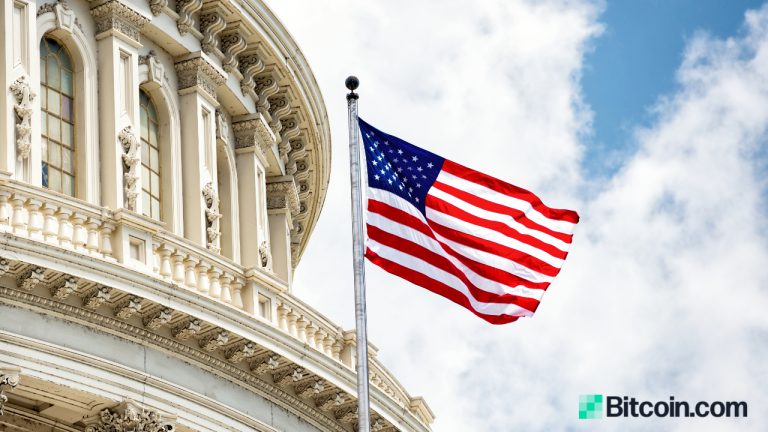 U.S. government agencies are urgently working together on a joint regulatory framework for cryptocurrencies, Federal Reserve Vice Chair of Supervision Randal Quarles has confirmed. “We along with the OCC and the FDIC are engaged right now in what we are calling a sprint in seeking to pull together views on” crypto regulation. US Agencies Collaborating […]
U.S. government agencies are urgently working together on a joint regulatory framework for cryptocurrencies, Federal Reserve Vice Chair of Supervision Randal Quarles has confirmed. “We along with the OCC and the FDIC are engaged right now in what we are calling a sprint in seeking to pull together views on” crypto regulation. US Agencies Collaborating […]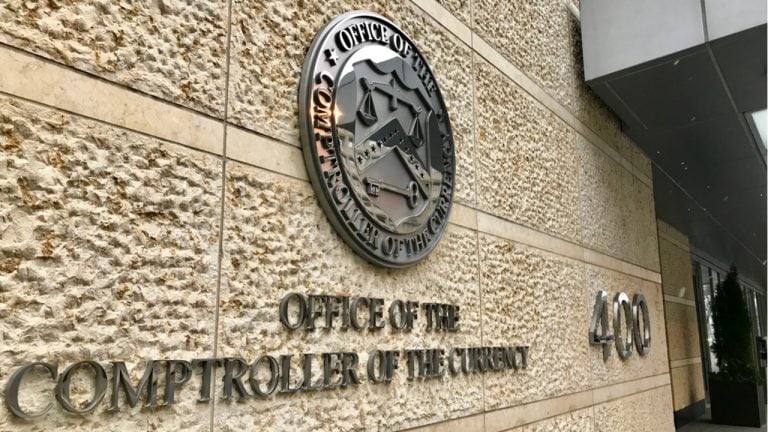 U.S. consumers have been receiving fake emails that attempt to impersonate a federal regulatory agency which has raised alarms among crypto community members. The U.S. Office of the Comptroller of the Currency (OCC) warned that such bogus messages ask people for their bitcoin wallet keys. Fictitious Message Contains Several Grammar Mistakes and Typos According to […]
U.S. consumers have been receiving fake emails that attempt to impersonate a federal regulatory agency which has raised alarms among crypto community members. The U.S. Office of the Comptroller of the Currency (OCC) warned that such bogus messages ask people for their bitcoin wallet keys. Fictitious Message Contains Several Grammar Mistakes and Typos According to […]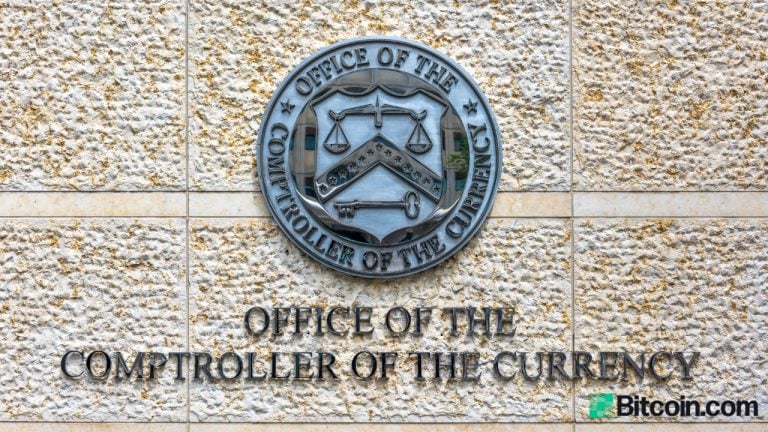 The new Acting Comptroller of the Currency, Michael Hsu, has requested a review of the cryptocurrency standards established by the top U.S. banking regulator. He is also urged to “reassess any conditional national trust charters and halt the approval of any additional charters to nonbank entities” during the review. Top Banking Regulator Reviewing Crypto Policy […]
The new Acting Comptroller of the Currency, Michael Hsu, has requested a review of the cryptocurrency standards established by the top U.S. banking regulator. He is also urged to “reassess any conditional national trust charters and halt the approval of any additional charters to nonbank entities” during the review. Top Banking Regulator Reviewing Crypto Policy […]
U.S. regulators are growing concerned in a week that has seen BTC lose a quarter of its value
U.S. regulators and lawmakers may be revisiting legislation for crypto assets following a wild week of trading that has seen Bitcoin prices plunge by $15,000 at one point.
According to a May 20 Bloomberg report, Washington’s financial regulators are still unsure of how to regulate the volatile markets. As banking regulators testified on Capitol Hill on Wednesday, the Federal Reserve’s Vice Chairman of Supervision, Randal Quarles, spoke of a lack of sufficient regulations, stating:
“We are in the process at the Fed of studying the various ways to address this issue,”
He added that federal agencies need time to consider the right regulatory approach before they can then create a framework for oversight. U.S. authorities are still primarily concerned with the illicit activities associated with decentralized digital assets such as market manipulation, money laundering, and a growing trend in ransomware attacks.
Texas Democrat Al Green implored Quarles to offer ideas on how Congress should regulate the market declaring that: “This is a serious issue. We need your expertise.”
Bitcoin and cryptocurrency markets are volatile by nature and large corrections of this magnitude have been the norm after such rapid ascents, however financial regulators appear unnerved by this latest rout.
Acting Comptroller of the Currency Michael Hsu said he and other regulators have discussed setting up an inter-agency task force on crypto tokens. Meanwhile, Senate Banking Committee Chairman Sherrod Brown separately voiced concerns over the volatility of cryptocurrencies.
“It tells me that fintech companies and others operating outside the regulatory system can pose a danger. I don’t know the solution yet with these, but it’s cause for concern.”
In a May 19 letter to acting Comptroller of the Currency Michael Hsu, Brown expressed concern about the OCC’s authority to grant charters to financial and non-financial companies. He specifically mentioned crypto companies Paxos, Protego, and Anchorage which were granted national trust charters under the previous head, Brian Brooks, who left the OCC to join Binance.
Sherrod accused Brooks of favoring crypto companies stating that: “A firm that cannot meet the rigorous requirements applicable to other banks should not be allowed to present itself to the public as a bank.”
He recommended that the OCC reassess any conditional national trust charters and halt the approval of any additional charters to non-bank entities.
Earlier this month, Securities and Exchange Commission Chairman Gary Gensler advised lawmakers on at least one change that he thought they should make which is granting the SEC clear authority over crypto exchanges.
Commenting on the highly speculative nature of Bitcoin, Gensler stated that, “it could go to zero or it could go high and that’s the nature of it,” adding that there is currently a gap in the system with regards to regulation and investor protection.
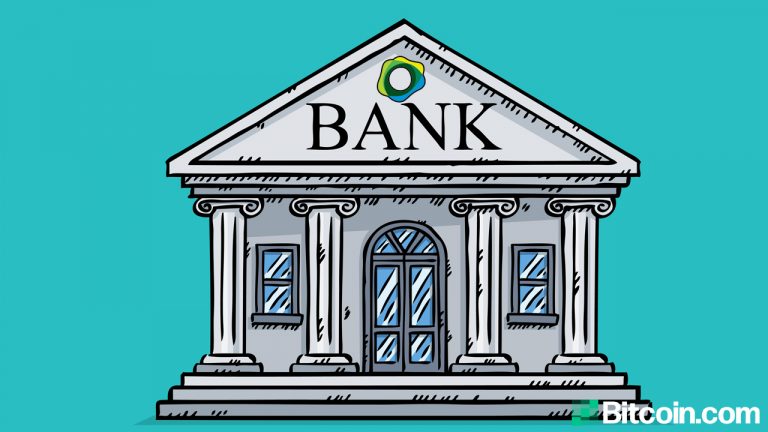 The digital currency and stablecoin issuer Paxos has been granted conditional approval for a bank charter under the Paxos National Trust in New York. The U.S. Office of the Comptroller of the Currency issued a preliminary conditional approval which means the regulating entity still has to authorize the firm’s future banking plans. Paxos Granted Preliminary […]
The digital currency and stablecoin issuer Paxos has been granted conditional approval for a bank charter under the Paxos National Trust in New York. The U.S. Office of the Comptroller of the Currency issued a preliminary conditional approval which means the regulating entity still has to authorize the firm’s future banking plans. Paxos Granted Preliminary […]
The stablecoin issuer has nabbed a banking license, but it doesn't mean they'll be doing any banking in the traditional sense.
The U.S. Office of the Comptroller of the Currency (OCC) has granted today stablecoin company and PayPal collaborator Paxos a federal charter to form a national trust bank — just the third such charter the OCC has granted crypto-native companies.
Paxos joins custody firm Achorage, who was the first to receive a charter in January, and fellow custodian Protego, which received their conditional charter in February.
As with the previous two charters, the “bank” label is somewhat misleading in that Paxos will not immediately be handling deposits. Instead, they received a “Fintech Charter” — a type of banking charter that was pioneered by former acting Comptroller of the Currency Brian Brooks.
The charter permits Paxos to conduct activities such as “custody services for digital assets; custody and management of USD stablecoin reserves; payment, exchange, and other agent services; other cryptocurrency services, such as trading services and enabling partners to buy and sell cryptocurrency; and “know your customer” as a service,” per an approval letter from the OCC sent to Paxos general counsel Dan Burstein.
The letter notes that all of these activities are currently being conducted by the Paxos Trust Company operating with a New York BitLicense; the charter allows a new Paxos entity to become a federally-regulated organization.
The OCC’s letter also indicates that there was some resistance to the issuance of the charter from the traditional banking sector.
During a public comment period, the OCC received a “letter signed by a number of trade groups representing banks” arguing that “the proposed activities do not align with OCC precedent with respect to fiduciary activities conducted by national trust banks,” and that “the application does not provide sufficient information on the Bank’s business model.”
However, the OCC countered that they “received sufficient information to make an informed decision” and ultimately determined that “it is appropriate to grant preliminary conditional approval to allow the organizers to proceed with the organization of the Bank.”
The approval follows a string of high-profile wins for Paxos. In December, the company raised $142 million in a funding round, and in April applied for a clearing license following a successful pilot of same-day stablecoin settlement with Credit Suisse, among other institutions.
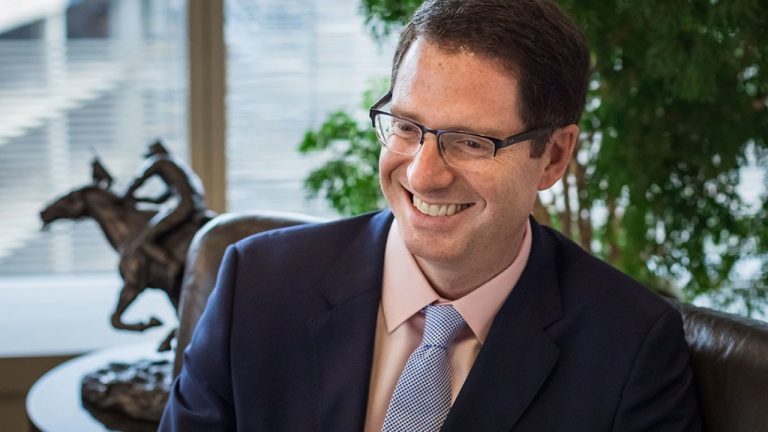 A former top regulator and acting head of the U.S. Comptroller of the Currency, Brian Brooks has been appointed the CEO of crypto exchange Binance.us. Brooks will lead the exchange on May 1st and replace the company’s current lead, Catherine Coley. Binance has hired an individual with ties to Washington, as the company’s American trading […]
A former top regulator and acting head of the U.S. Comptroller of the Currency, Brian Brooks has been appointed the CEO of crypto exchange Binance.us. Brooks will lead the exchange on May 1st and replace the company’s current lead, Catherine Coley. Binance has hired an individual with ties to Washington, as the company’s American trading […]
Brian Brooks has defended the fintech charter he oversaw while heading the OCC, warning heavy-handed crypto regulations could undermine U.S. competitiveness globally.
Brian Brooks has defended the fintech banking charter introduced while he served as the acting comptroller of the currency after Congressional Democrats took aim at the license on Thursday.
Brian appeared as a witness before the House Financial Services Committee’s Subcommittee on Consumer Protection and Financial Institutions at an April 15 hearing titled, “Banking Innovation or Regulatory Evasion? Exploring Trends in Financial Institution Charters.”
The fintech charter was introduced by the Office of the Comptroller of the Currency, or OCC, and overseen by Brooks in 2020, allowing financial technology firms including cryptocurrency companies to offer lending and payment products without being overseen by state banking regulators, FDIC insurance, or deposits from customers.
Californian representative and chairwoman of the House Financial Services Committee, Maxine Waters, claimed that banks and state regulators have complained about the lack of regulatory scrutiny faced by fintech firms licensed under the charter:
“State regulators, community banks and credit unions have raised alarms about how new entities, including big tech firms, are receiving unconventional bank charters and offering bank products and services while evading regulations most banks, including community banks, must comply with.”
Waters characterized the OCC of having “overstepped its authority,” accusing the office of “pretending that laws signed by Abraham Lincoln were intended to create charters for fintech or cryptocurrency.”
However, Brooks told the committee the charter had bolstered regulatory oversight of the fintech and crypto industries, arguing their activities would otherwise continue outside of regulators’ view.
Brooks described the charter as empowering firms that “provide consumers with better alternatives to traditional banks on the one hand and strip-mall financiers, like payday lenders, on the other.”
Other Democrats raised concerns that Bitcoin is primarily a vehicle for criminal syndicates, with California’s Brad Sherman claiming the crypto asset is largely used by “tax evaders” and “narco-terrorists.” Texas’s Al Green also advanced what he said were his constituents’ concerns regarding the prevalence of Ponzi schemes in the crypto sector.
Brooks dismissed these worries, arguing that exclusionary regulations could hinder the United States’ technological dynamism and that heavy-handed legislation could undermine U.S. soft power in the emerging digital economy:
“We’re building a second Internet here — it’s not built for terrorist financing, it’s built to allow us to have a truly decentralized Internet. If you believe that America’s soft power in the world has a lot to do with the fact that we control ICANN and the Internet Protocol, I think you would feel similarly about these new protocols.”